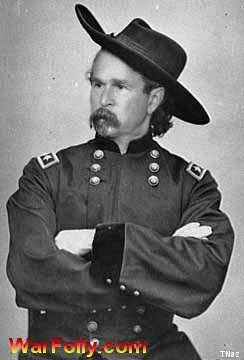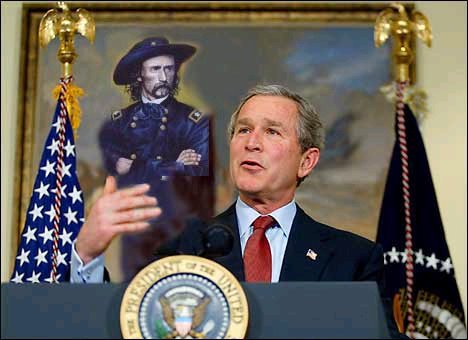|
Is
Baghdad Bush's Little Bighorn? 3-30-03
George Armstrong Custer emerged from West Point at the bottom of his class where he had amassed a huge number of demerits. His success in the Civil War might be attributed to his unorthodox methods and the wild charges he led with no concern for the scouting reports, if he ever read them. He had the highest casualty figures among the Union division commanders. However, he himself emerged unscathed. After the war he was made lieutenant-colonel of the Seventh Cavalry on America's western frontier. Custer is best remembered for losing the battle of Little Bighorn, June 25th, 1876, in which his troops faced combined bands of Lakota Sioux, Cheyenne, and Arapaho Indians led by the chief Sitting Bull. The battle ended with Custer's troops on a knoll encircled by Indians a moment which became known as Custer's Last Stand; Custer and his entire force of over 200 men were killed. The battle made Custer a popular American hero and martyr for nearly a century, but by the late 1900s his stardom faded a bit as his tactics were more closely examined and as popular attitudes toward Native Americans changed. Will American
support for Operation Iraqi Freedom diminish due to heavy
casualties and the battle for Baghdad be remembered in history
as Bush's Little Bighorn? I hope the worst case scenario will
be averted. Only time will tell.
Send
this story to a friend
Site
Design by Sarasota-Web.com |

